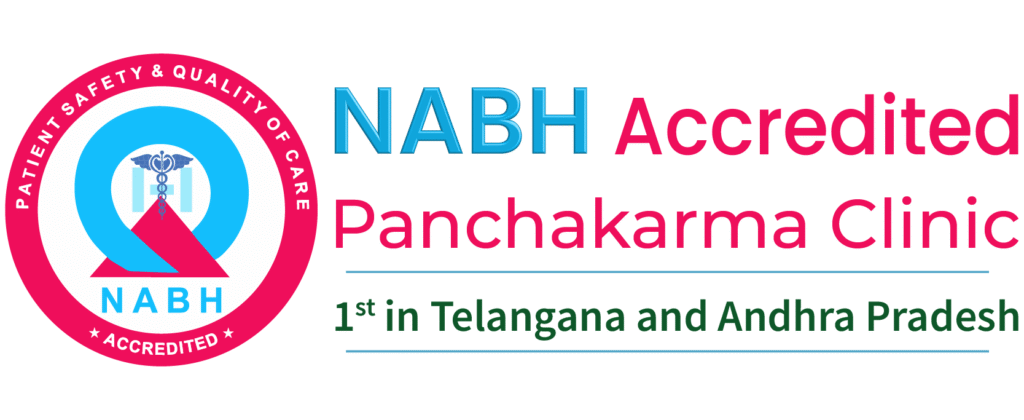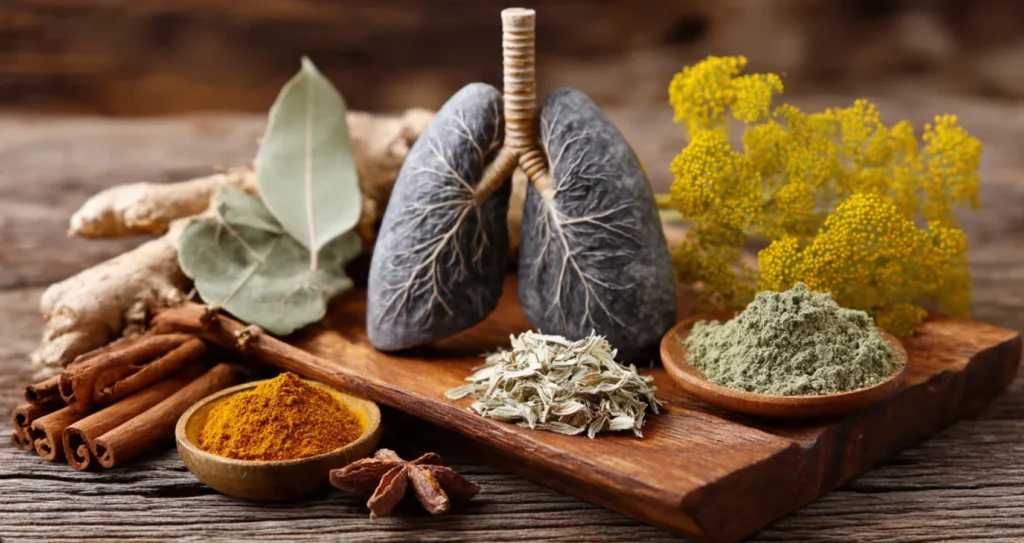When it comes to Ayurvedic Principles for Postpartum Care, one must understand the significance of nurturing both the mother and the newborn in a harmonious way. In Ayurveda, the postpartum period, known as “sutika,” is considered a sacred time where the mother is in a state of vulnerability and requires special care. It is believed that the well-being of the mother directly impacts the health of the newborn.
During this time, emphasis is placed on rest, warmth, and nourishing foods to help the mother regain her strength and balance. Warm oil massages, herbal baths, and gentle exercises are recommended to support the mother’s physical recovery. Additionally, the mother is encouraged to consume easily digestible foods that are rich in nutrients to promote healing and milk production. Many Ayurvedic practitioners at the best Ayurvedic hospitals in Bangalore and Kerala Ayurveda centers in Hyderabad recommend these practices for optimal postnatal care.
Emotional support is also crucial during this period, as the mother undergoes significant changes both physically and emotionally. Creating a peaceful and nurturing environment, practicing mindfulness, and seeking the guidance of experienced caregivers can help the mother navigate this transformative journey with grace and ease.
Importance of Dosha Balance
To attain peak postnatal well-being according to Ayurveda, maintaining a harmonious balance of the doshas, Vata, Pitta, and Kapha, is of utmost importance. The doshas are the fundamental energies that govern our physical and mental processes. Vata, associated with movement, Pitta with transformation, and Kapha with structure, each play a crucial role in our overall health. During the postpartum period, these doshas can become imbalanced due to the physical and emotional demands of childbirth. Imbalances can lead to issues such as fatigue, anxiety, and digestive disturbances.
To restore equilibrium, Ayurveda recommends practices tailored to your unique constitution. For example, if you’re experiencing excess Vata, warm oil massages and nourishing foods can help ground and calm your energy. If Pitta is aggravated, cooling practices like gentle yoga and hydrating foods can soothe your system. And for Kapha imbalance, invigorating exercises and warming spices can stimulate your metabolism. Renowned centers such as NABH Ayurvedic Panchakarma clinics in Hyderabad are known for offering personalized therapies to restore balance. By harmonizing the doshas through personalized care, you can promote healing and rejuvenation during the postnatal period.
Nutritional Guidelines for Recovery
As you navigate the path towards postnatal recovery, nourishing your body with the right foods is a foundational aspect of Ayurvedic care. During this delicate time, focus on warm, cooked, and easily digestible meals. Incorporate nourishing ingredients like ghee, grains, lentils, and vegetables cooked in gentle spices like cumin, coriander, and turmeric. Embrace foods that are sweet, sour, and salty in taste to support rejuvenation and healing. Include plenty of warm herbal teas and soups to stay hydrated and aid in digestion.
Pay attention to your individual needs and cravings, as they may offer insights into what your body requires for recovery. Avoid cold, raw, and processed foods as they can hinder digestion and weaken your postpartum strength. Opt for nutrient-dense meals that provide sustenance and energy. Many Ayurvedic experts, including those at best Ayurvedic hospital for Postnatal Care, emphasize the importance of these dietary guidelines. Remember, nourishing yourself with wholesome foods not only supports your physical recovery but also nurtures your emotional well-being during this transformative period.
Ayurvedic Herbs for Healing
Embrace the ancient wisdom of Ayurveda by incorporating a selection of potent herbs into your postnatal healing routine. Ayurvedic herbs are nature’s gifts, offering gentle yet effective healing properties to nurture your body during this delicate phase. Shatavari, known as the “Queen of Herbs,” is renowned for its ability to support hormonal balance and enhance lactation. Ashwagandha, a powerful adaptogen, can help reduce stress and promote overall well-being as you adjust to the demands of motherhood. Triphala, a blend of three fruits, aids digestion, detoxification, and rejuvenation, assisting your body in returning to a state of balance. Moreover, fenugreek seeds can boost milk production, while turmeric provides anti-inflammatory benefits to aid in postpartum recovery. Renowned practitioners at Kerala Ayurveda centers in Hyderabad and Ayurvedic hospital for Postnatal Care in Hyderabad often recommend these herbs for holistic healing. These herbs, when used mindfully and in consultation with an Ayurvedic practitioner, can play a crucial role in supporting your journey towards holistic healing and wellness after childbirth.
Self-Care Practices for New Mothers
Begin your journey towards holistic healing and wellness as a new mother by prioritizing self-care practices that nurture both your body and mind. In Ayurveda, self-care plays a pivotal role in postnatal recovery. Start by ensuring you get ample rest and sleep, as this is essential for your body to recover from childbirth. Nourish yourself with warm, cooked foods that are easy to digest, such as soups, stews, and herbal teas. Gentle self-massage with warm oils like sesame or coconut can help improve circulation, reduce muscle tension, and promote relaxation. Take short walks in nature to connect with the healing energy of the outdoors and get some gentle exercise. Allow yourself moments of quiet reflection or meditation to calm your mind and reduce stress. Experienced practitioners at Ayurvedic hospitals in Bangalore and best Ayurvedic hospitals in Hyderabad often stress the importance of self-care for postnatal recovery. Embracing these self-care practices will not only support your physical recovery but also nurture your emotional well-being during this transformative postpartum period.
Mind-Body Practices for Well-being
Deeply rooted in the ancient wisdom of Ayurveda, the practice of mind-body connection forms the cornerstone of holistic well-being for new mothers. Cultivating a deep sense of peace and balance within your mind and body is essential during the postnatal period. Begin each day with gentle yoga or mindful meditation to center yourself and promote relaxation. Nourish your body with warm, nutrient-dense foods that support healing and energy. Embrace the power of positive affirmations and visualization techniques to foster a sense of empowerment and positivity. Prioritize adequate rest and sleep to rejuvenate your body and mind. Engage in deep breathing exercises to calm the nervous system and reduce stress. Connect with nature through leisurely walks or spending time in a garden to ground yourself and enhance your overall well-being. Practitioners at Kerala Ayurveda centers in Bangalore can guide you in incorporating these practices into your routine. By incorporating these mind-body practices into your daily routine, you can nurture yourself from within and experience a profound sense of harmony and energy as you navigate the beautiful journey of motherhood.
Ayurvedic Massage and Oil Therapies
To support your postnatal recovery and enhance overall well-being, Ayurvedic tradition emphasizes the therapeutic benefits of massage and oil therapies. Ayurvedic massage, known as Abhyanga, involves warm herbal oils applied to your body in gentle, rhythmic motions. This nurturing practice helps improve blood circulation, ease muscle tension, and promote relaxation. The use of specific oils tailored to your dosha (body type) can further enhance the healing effects of the massage.
Oil therapies in Ayurveda play a pivotal role in restoring balance and vitality after childbirth. Massaging your body with warm oils not only nourishes your skin but also deeply nourishes your tissues, joints, and muscles. The oils used, like sesame or coconut oil infused with herbs, are selected for their healing properties and ability to pacify Vata dosha, which can become aggravated postpartum. best Ayurvedic hospital for Postnatal Care in Hyderabad often recommend these therapies for their patients’ holistic recovery.
Incorporating Ayurvedic massage and oil therapies into your postnatal care routine can provide profound physical and emotional benefits, helping you feel rejuvenated and supported during this tender phase of motherhood.
Creating a Healing Postpartum Environment
Creating a nurturing and supportive postpartum environment is important for your recovery and well-being after childbirth. Your surroundings play a significant role in aiding your body and mind to heal during this delicate phase. Here are some key elements to keep in mind when creating a healing postpartum environment:
| Element | Description |
| Natural Light | Allow sunlight to brighten your space, boosting mood and aiding in your body’s natural rhythms. |
| Comfortable Bedding | Invest in soft, cozy bedding to promote restful sleep and relaxation, essential for your recovery. |
| Aromatic Scents | Use calming essential oils like lavender or chamomile to create a soothing atmosphere, promoting relaxation and reducing stress. |
Frequently Asked Questions
Can I Practice Ayurvedic Postnatal Care if I Had a C-Section?
Yes, you can practice Ayurvedic postnatal care even if you had a c-section. Ayurveda offers gentle ways to support your body during this delicate time, such as special diets, herbal remedies, and self-care practices. It is crucial to consult with a knowledgeable Ayurvedic practitioner who can tailor the care to your specific needs and help you navigate the recovery process effectively. Renowned best Ayurvedic doctors in Bangalore can provide personalized guidance. Trust in the wisdom of Ayurveda to nurture you back to health.
How Soon After Childbirth Can I Start Ayurvedic Therapies?
You can start integrating Ayurvedic therapies after childbirth once your body is ready. Typically, it is advised to wait at least 2-6 weeks to guarantee proper healing depending on your individual circumstances. Listen to your body and consult with an Ayurvedic practitioner to determine the best time to start. Kerala Ayurveda centers in Hyderabad offer tailored programs to ensure a safe transition. Postnatal care is a holistic journey, so be gentle with yourself and prioritize your well-being during this sacred time of change.
Are There Any Specific Ayurvedic Practices for Breastfeeding Mothers?
As a breastfeeding mother, specific Ayurvedic practices can support your well-being. Incorporating warm, cooked foods like soups and stews can nurture your body and aid in milk production. Herbs like fenugreek and fennel may be beneficial. Gentle self-massage with warm oils can promote relaxation and help with any postpartum discomfort. Best Ayurvedic hospitals in Hyderabad are known for their comprehensive care for breastfeeding mothers. Stay hydrated with warm herbal teas and maintain a peaceful environment for both you and your baby.
Can Ayurveda Help With Postpartum Mental Health Issues?
Absolutely, Ayurveda can be a wonderful ally in supporting your mental health postpartum. Through personalized herbal remedies, nourishing foods, gentle self-care practices, and mindfulness techniques, Ayurveda aims to balance your mind, body, and spirit. By addressing imbalances in your doshas and promoting overall well-being, Ayurveda can help you navigate the emotional shifts that occur after childbirth with grace and resilience. Experts at best Ayurvedic hospital for Postnatal Care can provide holistic mental health support. Embrace this ancient wisdom to nurture your mental health during this transformative time.
Are There Any Dietary Restrictions to Follow During Ayurvedic Postnatal Care?
During Ayurvedic postnatal care, prioritize honoring your body’s needs. Embrace nourishing foods like warm soups, cooked grains, and herbal teas to support healing. Avoid cold, raw, and processed foods that may disrupt digestion. Spices like turmeric and ginger can help in recovery. Remember, balance is crucial – listen to your body, eat mindfully, and consider consulting with an Ayurvedic practitioner for personalized dietary advice. Many Ayurvedic hospitals in Bangalore provide comprehensive dietary guidance. Trust the wisdom of ancient traditions to lead you on your postpartum journey.












